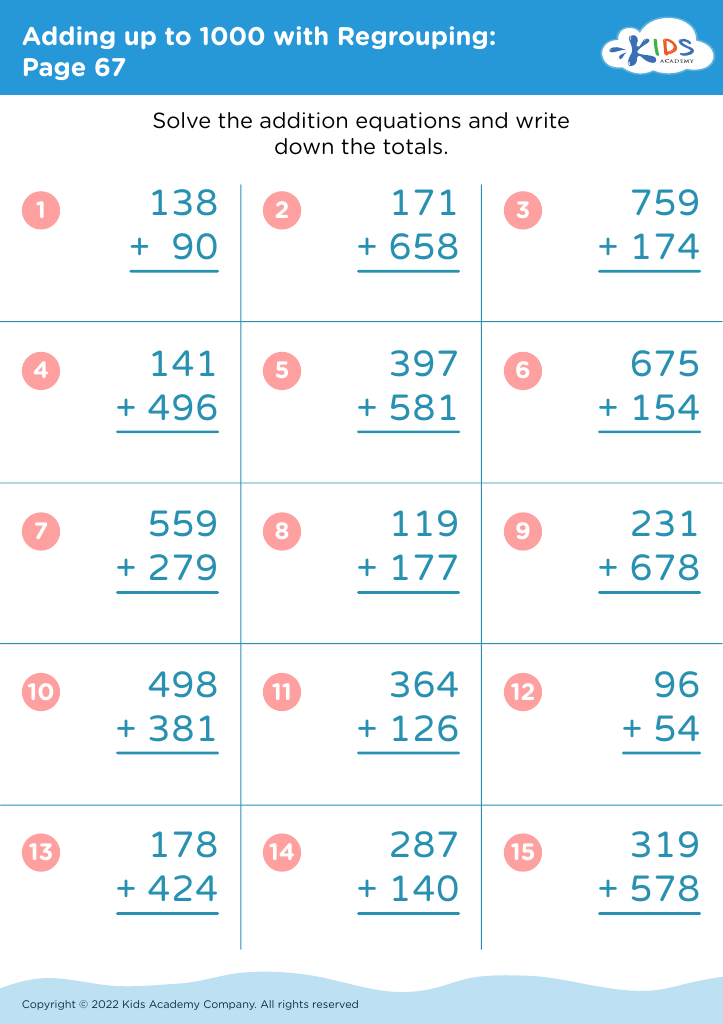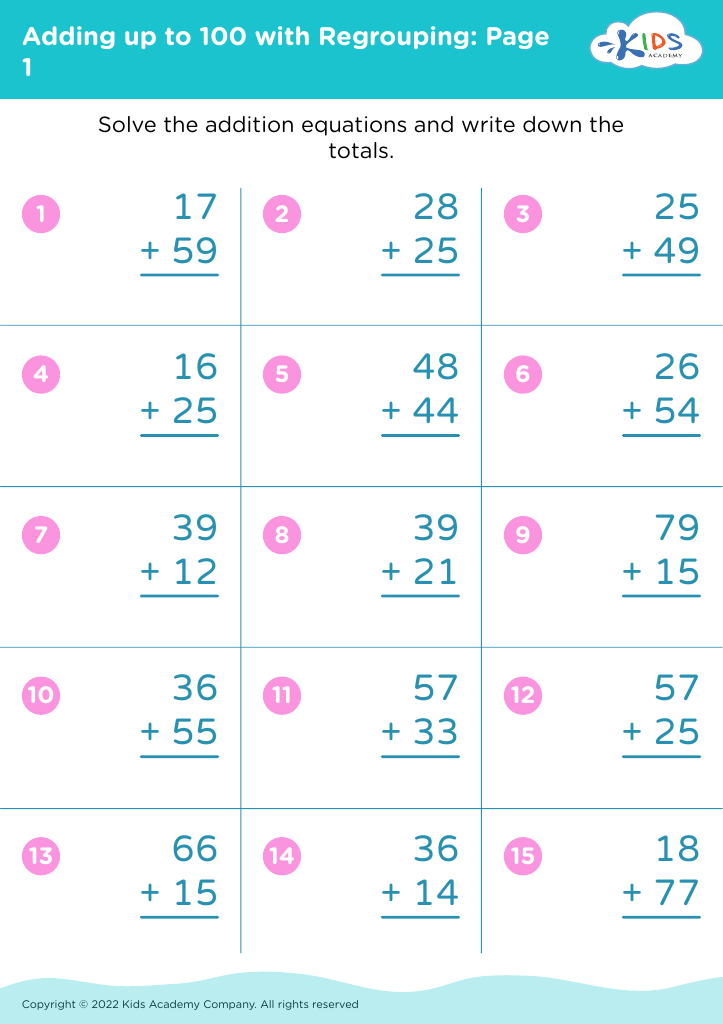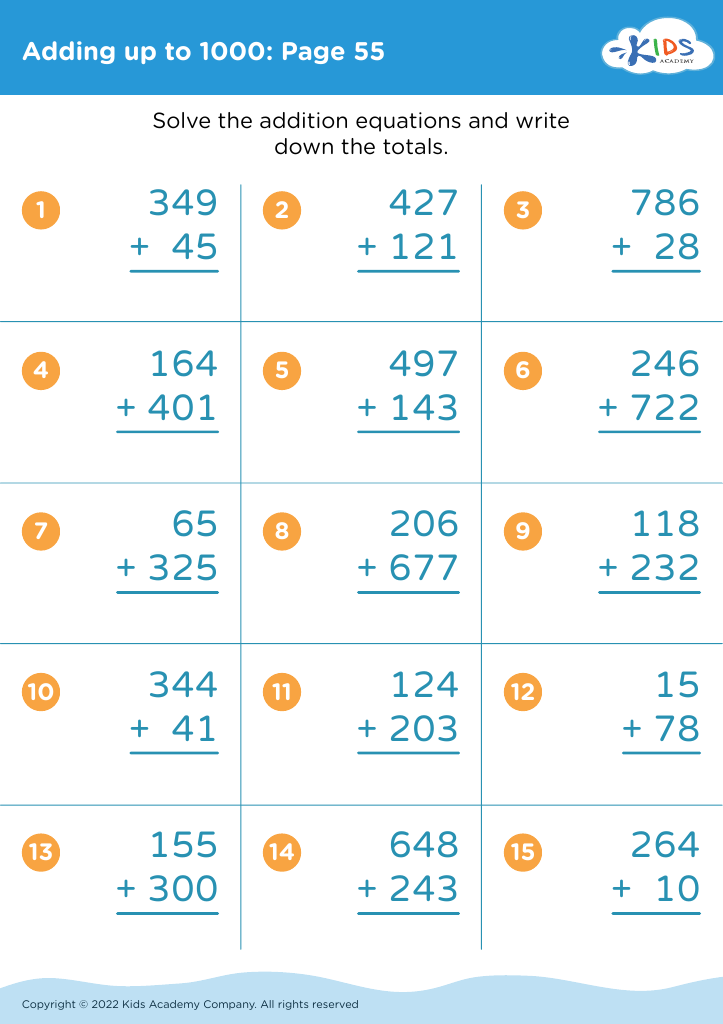Logical thinking development Math Worksheets for Ages 5-7
13 filtered results
-
From - To
Enhance your child's critical thinking skills with our engaging Logical Thinking Development Math Worksheets designed specifically for ages 5-7. These worksheets incorporate fun, interactive exercises that challenge young minds to solve problems, recognize patterns, and develop reasoning abilities. Each activity is tailored to reinforce foundational math concepts while promoting important cognitive skills such as logical reasoning, spatial awareness, and analytical thinking. Ideal for both classroom and home learning, our resources ensure children build confidence as they explore math in a playful way. Equip your little learners with the tools they need for future success in math and beyond with our thoughtfully designed worksheets!
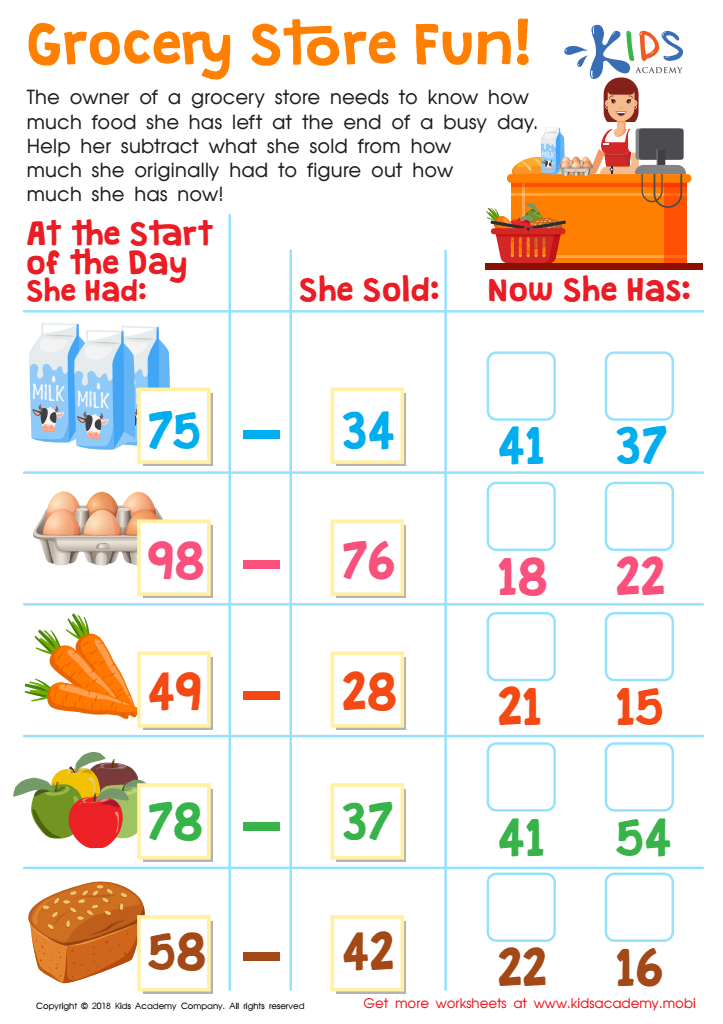

Grocery Store Fun! Worksheet


Tricky Problems Worksheet: Part 2
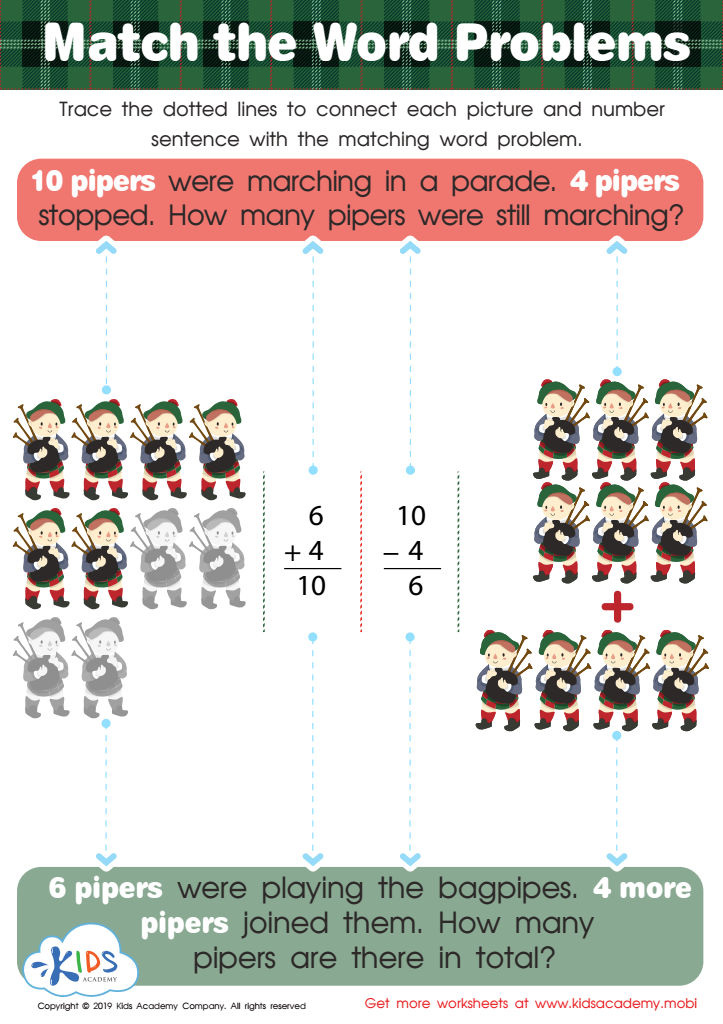

Match the Word Problems Worksheet
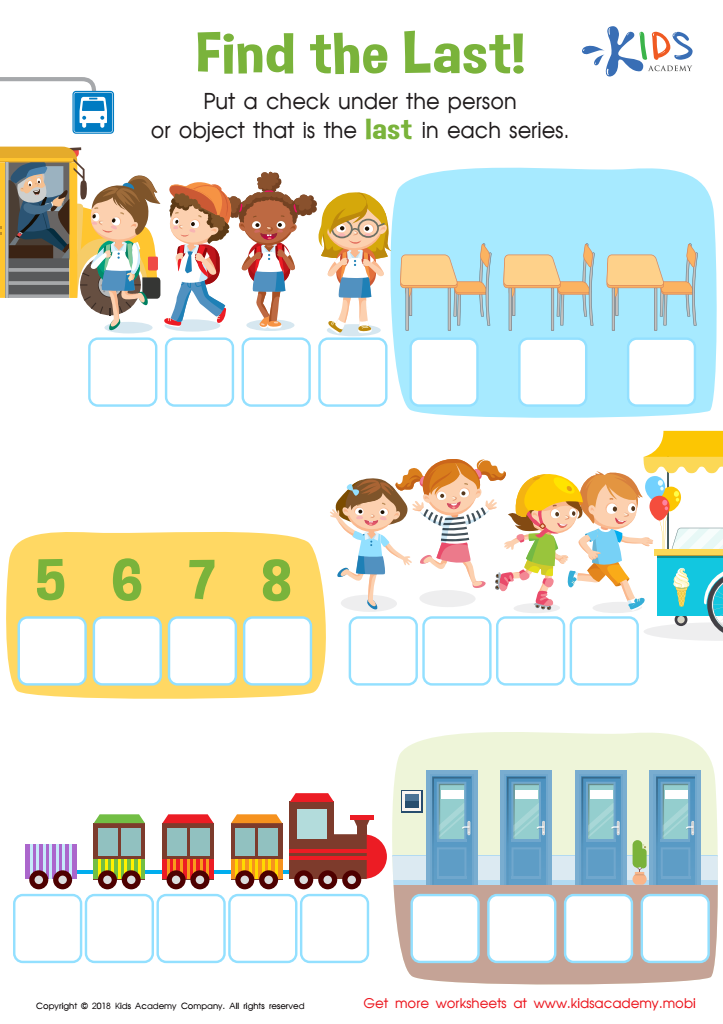

Find the Last! Worksheet
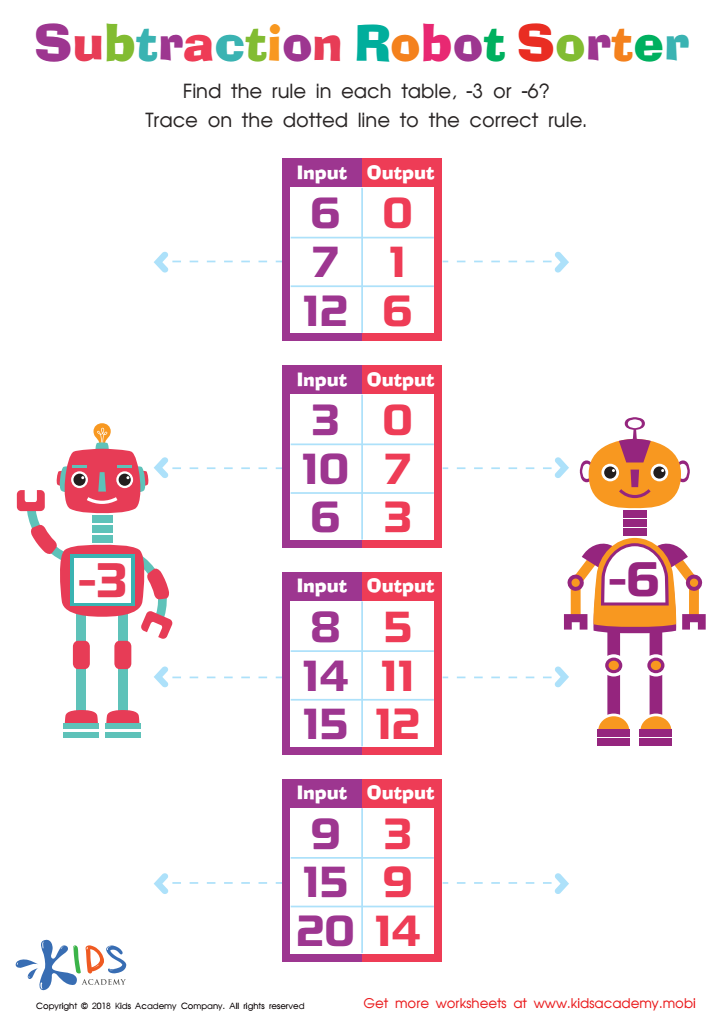

Subtraction Robot Sorter Worksheet
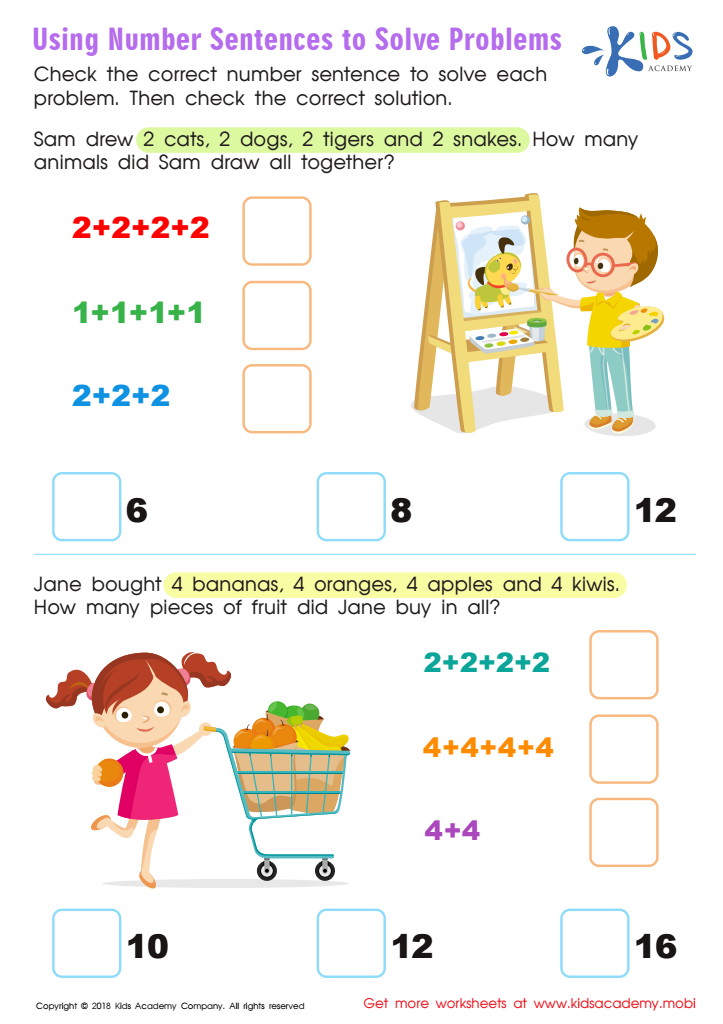

Using Number Sentences to Solve Problems Worksheet
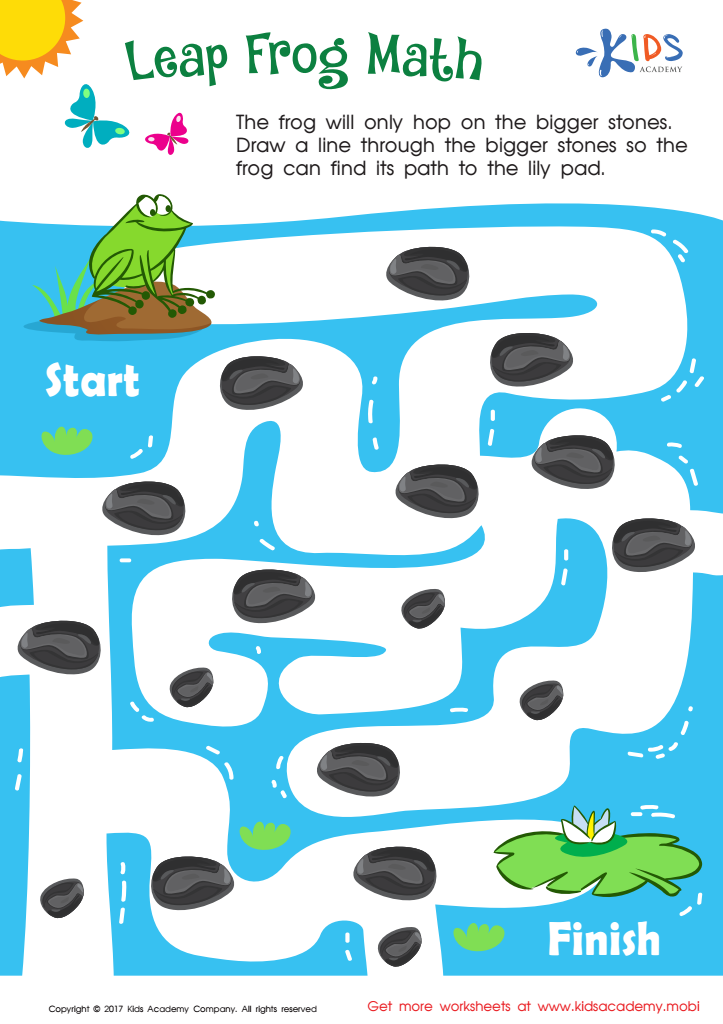

Math Puzzle Worksheet
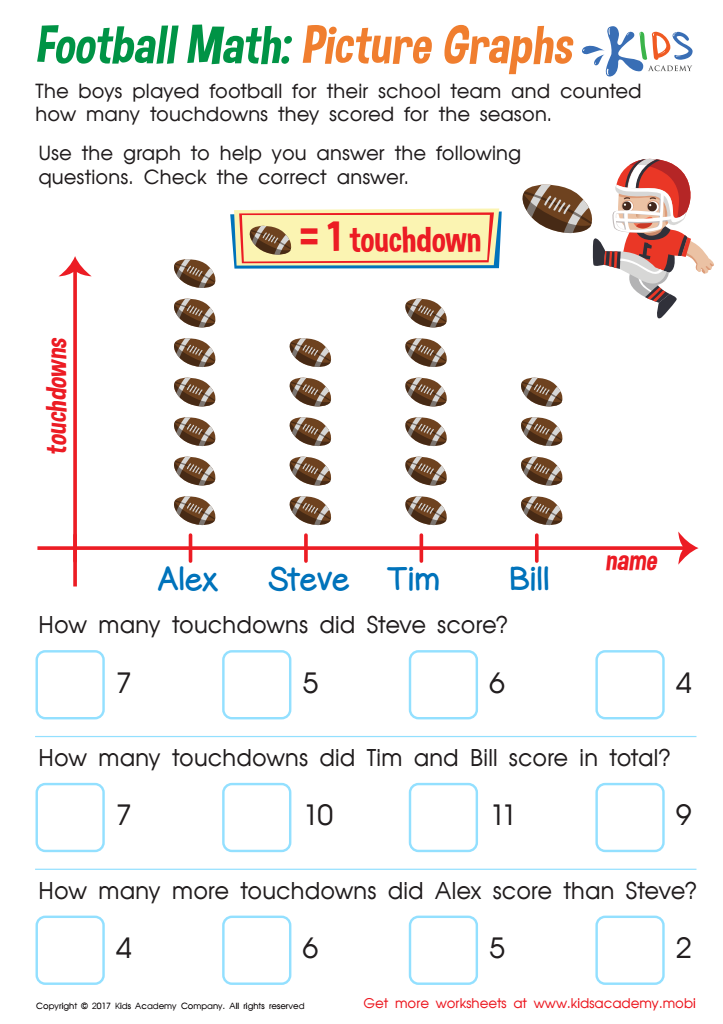

Football Math Worksheet
Parents and teachers should prioritize the development of logical thinking in math for children ages 5-7 because it forms the foundation for critical problem-solving skills that will benefit students throughout their academic journey and beyond. At this age, children are naturally curious, and fostering logical thinking enhances their ability to categorize, reason, and establish relationships among concepts. Engaging with basic mathematical concepts, such as patterns, shapes, and number sequences, sharpens their analytical skills, encouraging them to make connections and draw conclusions.
Furthermore, early mathematical exposure helps to boost confidence and a positive attitude toward math as children experience success in understanding core concepts. Logical thinking is not only crucial for math but also fosters essential life skills, including decision-making and logical reasoning, which are valuable both in academics and everyday situations.
Moreover, children who develop strong logical thinking abilities are more likely to excel in various subjects, as it lays the groundwork for future learning in science, technology, engineering, and art. Thus, investing time and effort into enhancing logical thinking through playful and engaging math activities sets the stage for lifelong learning, resilience, and adaptability, making it a critical priority for parents and educators alike.
 Assign to My Students
Assign to My Students



